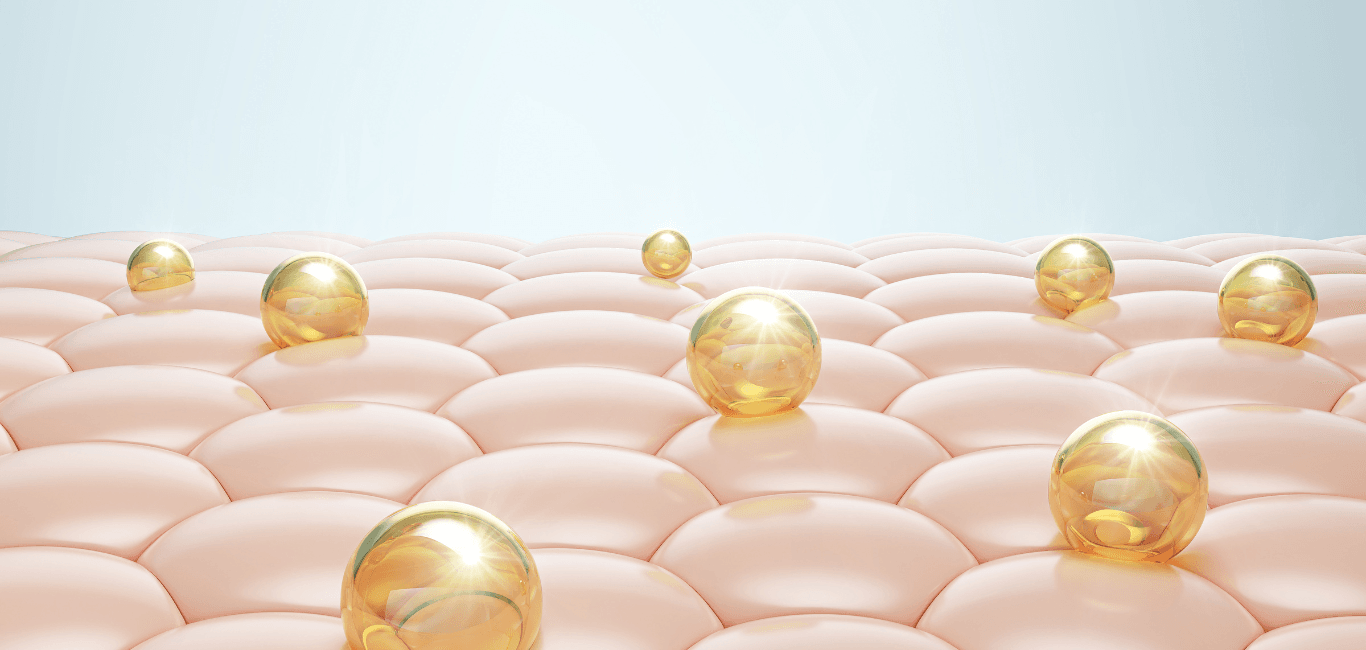Probiotics in skincare -Are they fact or fiction?
Probiotics are foods or supplements that contain live beneficial microorganisms and are given in specific quantities to provide health benefits to the host. They have gained popularity in recent years for their potential benefits in various aspects of health including skincare. Though primarily known for their positive effects on gut health, new research in this area indicates that they may also play a significant role in maintaining skin health- particularly by enhancing skin’s barrier functioning, promoting hydration and regulating inflammation. Fermented foods and dietary supplements are possible ways of incorporating probiotics into our daily lives that improves overall health, including skin health.
Skin aging is a complex biological process influenced by several external and internal factors. A regular skin care routine plays a prominent role in improving smoothness, regeneration, and increasing the resilience and elasticity of the skin. However current research suggests that a balanced skin microbiota plays a prominent role in skin health, and any alterations could lead to dysregulated communications, and in some cases, the overgrowth of pathogenic strains are linked to various skin diseases.

It is important to understand that the skin’s responses to different environmental factors vary based on skin type, which means that each individual has unique needs for preserving their skin health. As a result, personalized skin care has emerged as a promising approach, which involves personalisation of skincare routines and potentially the development of new skin care products tailored to meet these specific individual needs.
In this article let us explore the current research about probiotic-based skin care products and investigate if taking oral probiotics also helps in maintaining skin health.
Topical use of probiotics

Exciting new avenues for dermatological treatments have been made possible by expanded understanding of the skin microbiota, its interactions with the environment, and its potential to treat skin disorders. Consequently, the pharmaceutical and cosmetic sectors have started exploring probiotics and postbiotics products as emerging options for enhanced skin care applications.
The use of probiotics in skincare dates back to 1912 when topical use of Lactobacillus bulgaricus helped to alleviate skin problems including acne and seborrhea (a skin condition in which the skin produces excess oil thus making it itchy and prone to rashes).
How does topical probiotics work?
As the name suggests, topical probiotics are skin care products infused with live beneficial bacteria that help promote skin health. Along with regulating skin microbiome, these microbes can also produce certain molecules known as antimicrobial peptides (AMPs) that inhibit harmful pathogens. For instance, a clinical study reveals that skin care products infused with Staphylococcus epidermidis and Staphylococcus hominis produce phenol based molecules that inhibit the growth of harmful bacteria like Staphylococcus aureus which is found to be associated with eczema and other infections. At the same time, these probiotics interact with the skin cells stimulating immune responses to fight infections and reduce tissue inflammation.
Benefits of topical probiotics
Numerous pilot studies demonstrate the uses for topical probiotics in the treatment of various skin conditions, including eczema, acne, and in the promotion of cellular activities like wound healing, skin restoration, and UV protection. According to studies, strains such as Nitrosomonas eutropha may assist to enhance skin texture, speed up wound healing, and stop the growth of harmful bacteria. Some probiotic-infused products not only increased the formation of collagen but also shielded the skin from UV-induced oxidative damage.
Postbiotics
Postbiotics are the beneficial substances derived from probiotics and this term has been recently defined as the by-products or lysed probiotics that have several health benefits. They majorly include microbial extracts and bioactive compounds that offer a wide range of health benefits ranging from lowering tissue inflammation, promoting antioxidant activity and immunity to fight against pathogenic microbes that affect the overall well being of an individual. Compared to probiotics, postbiotics are more stable, and easy to infuse into skin care products.
Numerous studies exist in the pursuit of deciphering the antibacterial and anti-inflammatory properties of postbiotics. For instance, Lactobacillus plantarum cell lysates have been shown to strengthen the skin’s barrier and improve its moisture content. Similarly, a combination therapy of postbiotics and bioactive peptides greatly enhanced the hair growth in alopecia patients. Another observational study showed that skin care products infused with Lactobacillus lysate helped to control acne by reducing sebum production.
Oral probiotics for skin health
In addition to probiotic based topical skin care products, oral probiotics could also help to improve skin health through modulating the gut-skin axis. Based on the current research advancements in the field of the microbiome, there is mounting evidence that a number of chronic inflammatory skin conditions, including atopic dermatitis, psoriasis, rosacea, and acne, can be linked to imbalances in the gut and elevated inflammatory chemicals. Thus, restoring the balance of the gut microbiota could also help to manage the symptoms associated with these inflammatory skin conditions.
Are probiotic products the future of skincare?
To decipher the role of probiotics in skincare, one needs to understand the skin microbiome. Current research states that external environmental factors can affect the balance of skin microbes and these alterations are associated with altered skin health. Topical probiotics may help to restore these microbial imbalances.
Parallelly, despite a number of health advantages, topical probiotics may not be stable in the product formulations as they are sensitive to slight variations in temperature, pH, oxygen and preservatives in the formulations. In addition to the complications relating to stability of probiotics in the products, the safety of the topical probiotics has to be accessed , particularly in those with weakened immune systems, elderly people, pregnant women, and new-borns. Further studies are required to demonstrate efficacy, mechanisms of action, and most importantly, safety of these products.
Unlike oral probiotics that have been extensively studied for benefiting gut health, these topical probiotics require more studies to be understood thoroughly, and enter mainstream skincare markets.
Along with the stability of products, the regulatory challenges for probiotics in skincare are also multifaceted, involving definitions, safety standards, labelling requirements, and the need for scientific validation. As the market for probiotic cosmetics continues to grow, addressing these challenges will be crucial for ensuring consumer safety and product efficacy. The potential of probiotics in skincare is significant, but it requires transparent regulatory practices and rigorous scientific backing to realize their full benefits.